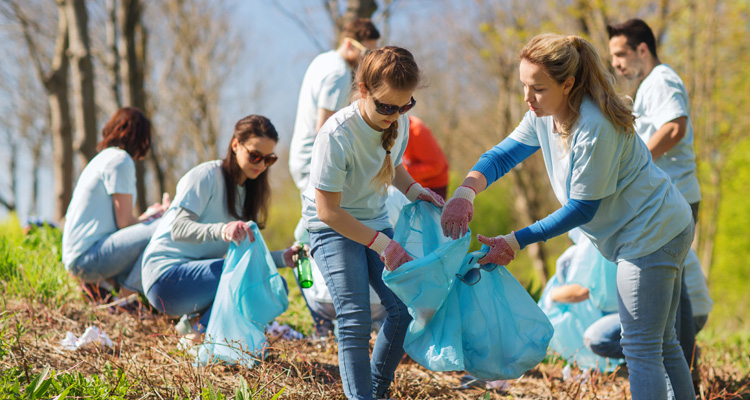If you’ve been to Disney World, you’re probably familiar with the popular ride “It’s a Small World” and its catchy theme song. It’s a message of “we’re all in this together,” which is the same philosophy good global citizens espouse.
Good global citizens aren’t concerned solely about what’s in their best interests. They are mindful that collective individual actions have global ramifications. Good global citizens think about the consequences of their choices and strive to make choices that will do the least amount of harm to others (that includes future generations) and to the planet.
“There’s so much that we share that it’s time we’re aware it’s a small world after all…”
It Starts with Education
If you’d like to raise good global citizens, first you need to educate your children about the environmental issues that threaten our planet. Of course, you’ll want to take an age-appropriate approach to these conversations. The last thing you want to do is scare your kids! Talk to them about such topics as:
- Global warming,
- Social injustice,
- The value of diversity and biodiversity,
- Respect for all living creatures, and
- The scarcity of finite natural resources.
To quote German philosopher Hannah Arendt, raise your children to have “an ethic of care for the world.”
“Good global citizenship” is a somewhat vague label. One simple and effective way to foster it is to look for teachable moments in your everyday routine. If you’re taking a stroll along the beach or through the park and encounter trash, explain how that trash can be harmful to birds, animals, and marine life.
Be Aware of Harmful Materials
The plastic rings that hold together six-pack beverage cans can become stuck around animals’ necks. Animals’ heads can become stuck in cans of all sizes. Plastic bags can kill marine life. Being a good global citizen includes being mindful of how your actions affect all of the creatures that inhabit Earth.
Begin the conversation, and then eventually consider taking it a step further by acting! Join a “trash bash” cleanup event. Or, better yet, recruit family and friends and start your own. In other words, be the change you’d like to see in the world.
Speaking of plastic bags—explain to your children how plastic bags harm the environment and vow as a family to boycott them. Plastic bags can take anywhere from 15 to 1,000 years to decompose. And when they do, they contribute to environmental degradation. Reusable shopping bags significantly cut down on plastic bags in circulation. Plastic bottles are similarly harmful. One simple switch you can make is to stop buying bottled water. Let your child pick out a reusable water bottle instead.
Small Changes Can Yield Big Results
Other ways to raise good global citizens include:
- Teaching your children to recycle
- Teaching your children to turn off lights and electronic devices when not in use
- Planting a garden and growing your own food
- Beginning a composting regimen
- Walking or biking instead of driving when it makes sense
- Implementing “Meatless Monday” (or going vegan entirely)
- Planting a tree
- Encouraging your kids to learn about other cultures (visiting authentic ethnic restaurants is a fun way to begin the conversation)
- Traveling, if your budget permits
- Donating toys, books, food and/or clothing to local charities
- Volunteering in your community
There is only one planet Earth. We all share responsibility for ensuring that it remains healthy and is a pleasant place for all living beings. We may be American citizens. But more importantly, we are also global citizens.






















































































































